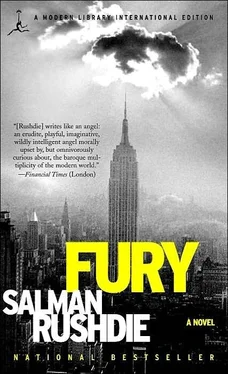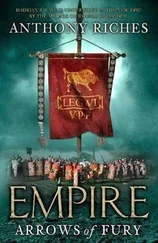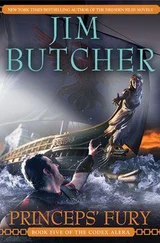Salman Rushdie - Fury
Здесь есть возможность читать онлайн «Salman Rushdie - Fury» весь текст электронной книги совершенно бесплатно (целиком полную версию без сокращений). В некоторых случаях можно слушать аудио, скачать через торрент в формате fb2 и присутствует краткое содержание. Город: New York, Год выпуска: 2002, ISBN: 2002, Издательство: Random House Publishing Group, Жанр: Современная проза, на английском языке. Описание произведения, (предисловие) а так же отзывы посетителей доступны на портале библиотеки ЛибКат.
- Название:Fury
- Автор:
- Издательство:Random House Publishing Group
- Жанр:
- Год:2002
- Город:New York
- ISBN:0679783504
- Рейтинг книги:5 / 5. Голосов: 1
-
Избранное:Добавить в избранное
- Отзывы:
-
Ваша оценка:
- 100
- 1
- 2
- 3
- 4
- 5
Fury: краткое содержание, описание и аннотация
Предлагаем к чтению аннотацию, описание, краткое содержание или предисловие (зависит от того, что написал сам автор книги «Fury»). Если вы не нашли необходимую информацию о книге — напишите в комментариях, мы постараемся отыскать её.
Fury — читать онлайн бесплатно полную книгу (весь текст) целиком
Ниже представлен текст книги, разбитый по страницам. Система сохранения места последней прочитанной страницы, позволяет с удобством читать онлайн бесплатно книгу «Fury», без необходимости каждый раз заново искать на чём Вы остановились. Поставьте закладку, и сможете в любой момент перейти на страницу, на которой закончили чтение.
Интервал:
Закладка:
His imagined world absorbed him more and more. He drew furiously, modeled in clay, whittled soft woods; above all, and furiously, he wrote. Mila Milo’s troop had begun to treat him with a kind of surprised reverence: who’d have thought, their manner seemed to say, that an old duffer could have come up with stuff as hip as this? Even slow, resentful Eddie went along with the new attitude. Solanka, despised by his own house cleaner, was much mollified by the young men’s respect and grew determined to prove worthy of it. Neela took up his nights, but he worked long hours during the days. Three or four hours of sleep proved to be enough. The blood seemed to pump harder through his veins. This, he thought, wondering at his undeserved good fortune, was renewal. Life had unexpectedly dealt him a strong hand, and he would make the most of it. It was time for a long, concentrated, perhaps even healing, burst of what Mila called serious play.
The back-story of events on Galileo—I had taken on a proliferating life of its own. Never before had Solanka needed—wanted—to go into such detail. Fiction had him in its grip, and the figurines themselves began to feel secondary: not ends in themselves, but means. He, who had been so dubious about the coming of the brave new electronic world, was swept off his feet by the possibilities offered by the new technology, with its formal preference for lateral leaps and its relative uninterest in linear progression, a bias that had already bred in its users a greater interest in variation than in chronology. This freedom from the clock, from the tyranny of what happened next, was exhilarating, allowing him to develop his ideas in parallel, without worrying about sequence or step-by-step causation. Links were electronic now, not narrative. Everything existed at once. This was, Solanka realized, an exact mirror of the divine experience of time. Until the advent of hyperlinks, only God had been able to see simultaneously into past, present, and future alike; human beings were imprisoned in the calendar of their days. Now, however, such omniscience was available to all, at the merest click of a mouse.
On the website, as it came into being, visitors would be able to wander at will between the project’s different storylines and themes: Zameen of Rijk’s search for Akasz Kronos, Zameen vs. the Goddess of Victory, the Tale of Two Dollmakers, Mogol the Baburian, Revolt of the Living Dolls 1: The Fall of Kronos, Revolt of the Living Dolls lI (This Time It’s War), The Humanization of the Machines vs. the Mechanization of the Humans, the Battle of the Doubles, Mogol Captures Kronos (or Is It the Dollmaker?), the Recantation of the Dollmaker (or Was It Kronos?), and the grand finale, Revolt of the Living Dolls III: The Fall of the Mogol Empire. Each of these in turn would lead to further pages, plunging ever deeper into the multidimensioned world of the Puppet Kings, offering games to play, video segments to watch, chat rooms to enter, and, naturally, things to buy.
Professor Solanka was intoxicated for hours on end by the Puppet Kings’ six-pack of ethical dilemmas; was at once fascinated and revolted by the emerging personality of Mogol the Baburian, who turned out to be a competent poet, expert astronomer, passionate cultivator of gardens, but also a soldier of Coriolanus-like blood lust, and the most cruel of princes; and was deliriously entranced by the shadow-play possibilities (intellectual, symbolic, confrontational, mystificational, even sexual) of the two sets of doubles, the encounters between “real” and “real,” “real” and “double,” “double” and “double,” which blissfully demonstrated the dissolution of the frontiers between the categories. He found himself inhabiting a world he greatly preferred to the one outside his window, and thus came to understand what Mila Milo had meant when she said that this was where she felt most alive. Here, inside the electricity, Malik Solanka emerged from the half-life of his Manhattan exile, traveled daily to Galileo-1, and began, once more, to live.
Ever since Little Brain’s censored remarks to Galileo Galilei, questions of knowledge and power, surrender and defiance, ends and means, had gnawed at Solanka. “Galileo moments,” those dramatic occasions when life asked the living whether they would dangerously stand by the truth or prudently recant it, increasingly seemed to him to lie close to the heart of what it was to be human. Man, I wouldn’t have taken that stufflying down. I’d have started a fucking revolution, me. When the possessor of truth was weak and the defender of the lie was strong, was it better to bend before the greater force? Or, by standing firm against it, might one discover a deeper strength in oneself and lay the despot low? When the soldiers of truth launched a thousand ships and burned the topless towers of the lie, should they be seen as liberators or had they, by using their enemy’s weapons against him, themselves become the scorned barbarians (or even Baburians) whose houses they had set on fire? What were the limits of tolerance? How far, in the pursuit of the right, could we go before we crossed a line, arrived at the antipodes of ourselves, and became wrong?
Near the climax of the back-story of Galileo-1, Solanka embedded one such defining moment. Akasz Kronos, a fugitive from his own creations, was captured in great old age by the Mogol’s soldiers and brought in chains to the Baburian court. By this time the Puppet Kings and the Baburians had been at war for a long generation, locked in a stalemate as debilitating as the Trojan War, and ancient Kronos, as creator of the cyborgs, was blamed for all their deeds. His explanation of his creations’ arrival at autonomy was rejected by the Mogol with a snort of disbelief. There followed, in the pages Solanka wrote, a long dispute between the two men on the nature of life itself—life as created by a biological act, and life as brought into being by the imagination and skill of the living. Was life “natural,” or could the “unnatural” be said to be alive? Was the imagined world necessarily inferior to the organic one? Kronos was still a creative genius in spite of his downfall and long penurious concealment, and he proudly defended his cyborgs: by every definition of sentient existence, they had grown into full-fledged lifeforms. Like Homo faber, they were users of tools; like Homo sapiens, they reasoned and engaged in moral debate. They could attend to their ills and reproduce their species, and by shedding him, their maker, they had set themselves free. The Mogol rejected these arguments out of hand. A malfunctioning dishwasher did not become a busboy, he argued. By the same token, a rogue puppet was still a doll, a renegade robot was still a robot. This was not a fit direction for their discussions to take. Rather, it was for Kronos to recant his theories and then provide the Baburian authorities with the technological data required to bring the Peekay machines under control. If he refused, the Mogol added, changing the tenor of the conversation, he would of course be tortured and, if necessary, torn limb from limb.
The “recantation of Kronos,” his declaration that machines had no souls whereas man was immortal, was greeted by the deeply religious Baburian people as a mighty victory. Armed with information provided by the broken scientist, the antipodean army created new weapons, which paralyzed the cyborgs’ neurosystems and rendered them inoperative. (The term “killed” was forbidden; what was not alive could not be dead.) The Peekay forces fled in disarray, and a Baburian victory looked assured. The Dollmaker cyborg himself lay among the fallen. Too egotistical—too “consistent”—to have created any replicas of himself, the Dollmaker was still one of a kind; thus his character was erased with his termination. The only person who could have re-created him was Akasz Kronos, whose fate was obscure. Perhaps the Mogol killed him, even after his abject surrender; or perhaps he was blinded like Tiresias and permitted, by way of further humiliation, to wander the world, begging bowl in hand, “speaking the truth that no man would believe,” while from every quarter he heard tales of the collapse of his own great enterprises, of the reduction of the great Kronosian Puppet Kings, the sentient cyborgs from Rijk, the first machines ever to cross the frontier between mechanical entities and living beings, into piles of useless junk. And while nobody would now believe the truth that he had himself denied, he himself had no choice but to accept the reality of the catastrophe that his own cowardice, his lack of moral fortitude, had brought about.
Читать дальшеИнтервал:
Закладка:
Похожие книги на «Fury»
Представляем Вашему вниманию похожие книги на «Fury» списком для выбора. Мы отобрали схожую по названию и смыслу литературу в надежде предоставить читателям больше вариантов отыскать новые, интересные, ещё непрочитанные произведения.
Обсуждение, отзывы о книге «Fury» и просто собственные мнения читателей. Оставьте ваши комментарии, напишите, что Вы думаете о произведении, его смысле или главных героях. Укажите что конкретно понравилось, а что нет, и почему Вы так считаете.











